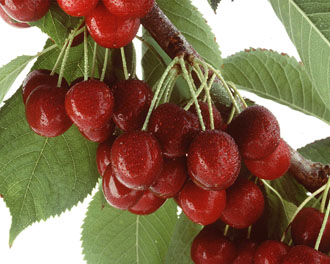Browse "Things"
-
Article
Chemical and Chemical Products Industries
Chemical manufacturing entails the conversion of one material to another by a chemical reaction on a commercial scale. The starting material (feedstock) can be a natural substance or a relatively pure chemical used as an "intermediate" for subsequent upgrading.
"https://development.thecanadianencyclopedia.ca/images/tce_placeholder.jpg?v=e9dca980c9bdb3aa11e832e7ea94f5d9" // resources/views/front/categories/view.blade.php
https://development.thecanadianencyclopedia.ca/images/tce_placeholder.jpg?v=e9dca980c9bdb3aa11e832e7ea94f5d9
-
Article
Chemical Engineering
Chemical engineering is the technology of scaling up to commercial size chemical reactions which have been demonstrated in the laboratory.
"https://development.thecanadianencyclopedia.ca/images/tce_placeholder.jpg?v=e9dca980c9bdb3aa11e832e7ea94f5d9" // resources/views/front/categories/view.blade.php
https://development.thecanadianencyclopedia.ca/images/tce_placeholder.jpg?v=e9dca980c9bdb3aa11e832e7ea94f5d9
-
Article
Chemistry
Chemistry, the science concerned primarily with the structure and properties of matter and with the transformation of one form of matter into another. Now one of the most theoretically and methodologically sophisticated sciences, chemistry had its beginnings in medieval alchemy. Because chemistry studies matter at a basic level, it is concerned with the physical sciences (e.g., physics), the life sciences (e.g., biochemistry, contemporary medicine) and the earth sciences (e.g., geology, geochemistry). Not only do chemical studies aim to understand natural processes, they also underpin production of many goods essential to daily living, ranging from food and drugs, through substances used in the visual arts, to heat and electricity. Chemical engineers specialize in the transfer of knowledge from the academic sphere to that of industry.
"https://d2ttikhf7xbzbs.cloudfront.net/media/media/137f6e93-4a0a-476c-a1e6-83cd14bf20de.jpg" // resources/views/front/categories/view.blade.php
https://d2ttikhf7xbzbs.cloudfront.net/media/media/137f6e93-4a0a-476c-a1e6-83cd14bf20de.jpg
-
Article
Chemistry Subdisciplines
Early chemistry was principally analytical in nature; only as the body of experimental data increased did the present-day specialities evolve. The principal chemical subdisciplines are analytical, inorganic, organic and physical chemistry.
"https://d2ttikhf7xbzbs.cloudfront.net/media/media/137f6e93-4a0a-476c-a1e6-83cd14bf20de.jpg" // resources/views/front/categories/view.blade.php
https://d2ttikhf7xbzbs.cloudfront.net/media/media/137f6e93-4a0a-476c-a1e6-83cd14bf20de.jpg
-
Article
Cherry
Cherry is the common name for certain members of genus Prunus of the rose family, which produce small, fleshy, single-stoned fruits.
"https://d2ttikhf7xbzbs.cloudfront.net/media/media/b4da7687-b290-412b-90e3-8ba3b4d789dd.jpg" // resources/views/front/categories/view.blade.php
https://d2ttikhf7xbzbs.cloudfront.net/media/media/b4da7687-b290-412b-90e3-8ba3b4d789dd.jpg
-
Article
Chesapeake Affair 1807
Wars often have many causes. Some are long-standing problems between nations, while others are dangerous sparks that inflame attitudes and push nations to a call to arms.
"https://development.thecanadianencyclopedia.ca/images/tce_placeholder.jpg?v=e9dca980c9bdb3aa11e832e7ea94f5d9" // resources/views/front/categories/view.blade.php
https://development.thecanadianencyclopedia.ca/images/tce_placeholder.jpg?v=e9dca980c9bdb3aa11e832e7ea94f5d9
-
Article
Chesapeake Affair 1863
On 7 December 1863, during the American Civil War, 16 Confederates seized American coastal steamer Chesapeake off Cape Cod and diverted it to Saint John, NB.
"https://development.thecanadianencyclopedia.ca/images/tce_placeholder.jpg?v=e9dca980c9bdb3aa11e832e7ea94f5d9" // resources/views/front/categories/view.blade.php
https://development.thecanadianencyclopedia.ca/images/tce_placeholder.jpg?v=e9dca980c9bdb3aa11e832e7ea94f5d9
-
Article
Chess
About 20% of adult Canadians play at least one game of chess a year. These games are mostly played for fun in backyards and basements, but for several thousand tournament players chess is a serious game.
"https://d2ttikhf7xbzbs.cloudfront.net/media/media/4bd218ac-b9bc-40de-9160-2af5b669aff8.jpg" // resources/views/front/categories/view.blade.php
https://d2ttikhf7xbzbs.cloudfront.net/media/media/4bd218ac-b9bc-40de-9160-2af5b669aff8.jpg
-
Macleans
Chess Master Beats Computer
"I remain a cautious optimist in the progress of the human brain," Garry Kasparov told reporters during a historic chess match last week. "I still believe that there are some horizons it will be very difficult for a computer to cross.This article was originally published in Maclean's Magazine on February 26, 1996
"https://development.thecanadianencyclopedia.ca/images/tce_placeholder.jpg?v=e9dca980c9bdb3aa11e832e7ea94f5d9" // resources/views/front/categories/view.blade.php
https://development.thecanadianencyclopedia.ca/images/tce_placeholder.jpg?v=e9dca980c9bdb3aa11e832e7ea94f5d9
-
Article
Chestnut
Chestnut (Castanea), genus of trees of beech family (Fagaceae). Of 10 known species, one, American chestnut (C. dentata), is indigenous to Canada.
"https://development.thecanadianencyclopedia.ca/images/tce_placeholder.jpg?v=e9dca980c9bdb3aa11e832e7ea94f5d9" // resources/views/front/categories/view.blade.php
https://development.thecanadianencyclopedia.ca/images/tce_placeholder.jpg?v=e9dca980c9bdb3aa11e832e7ea94f5d9
-
Article
Chiac
Chiac (also spelled chiak or chiaque) is a specific type of discursive switching between French and English among individuals who are highly bilingual and have Acadian French as their mother tongue but Canadian English as their first or second language.
"https://d2ttikhf7xbzbs.cloudfront.net/media/media/051052d9-c140-4d7a-9768-aa1d64cedeb3.jpg" // resources/views/front/categories/view.blade.php
https://d2ttikhf7xbzbs.cloudfront.net/media/media/051052d9-c140-4d7a-9768-aa1d64cedeb3.jpg
-
Article
Chickadee
Chickadees (genus, Poecile) are small birds, which live in woodlands throughout Canada, often visiting backyard birdfeeders.
"https://d2ttikhf7xbzbs.cloudfront.net/media/media/998c7cac-d331-47f0-872f-e80bf0e3cc2b.jpg" // resources/views/front/categories/view.blade.php
https://d2ttikhf7xbzbs.cloudfront.net/media/media/998c7cac-d331-47f0-872f-e80bf0e3cc2b.jpg
-
Article
Chickpea
Chickpea (Cicer arietinum L.) is part of the legume family. The two primary centres of origin for chickpea are Southwest Asia and the Mediterranean, while Ethiopia is a secondary centre of origin.
"https://d2ttikhf7xbzbs.cloudfront.net/media/media/031a5b27-5e03-4c02-a6dc-a39463809850.jpg" // resources/views/front/categories/view.blade.php
https://d2ttikhf7xbzbs.cloudfront.net/media/media/031a5b27-5e03-4c02-a6dc-a39463809850.jpg
-
Article
Chicoutimi Submarine Fire
HMCS Chicoutimi is one of four used submarines Canada purchased from Britain in the late 1990s. In 2004, on its maiden voyage under command of the Royal Canadian Navy (RCN), a fire caused severe damage, resulting in the death of one crew member. Eight others were injured. Chicoutimi would not sail again for almost 10 years.
"https://d2ttikhf7xbzbs.cloudfront.net/media/media/57f093ec-2cd7-48cf-bfbb-cdac1a0726ab.jpg" // resources/views/front/categories/view.blade.php
https://d2ttikhf7xbzbs.cloudfront.net/media/media/57f093ec-2cd7-48cf-bfbb-cdac1a0726ab.jpg
-
Article
Tsilhqot'in (Chilcotin)
The Tsilhqot'in (Chilcotin) are an Indigenous people who live between the Fraser River and the Coast Mountains in west-central British Columbia. Traditionally Dene (Athabascan) speaking, their name means "people of the red river" and also refers to the Chilcotin Plateau region in British Columbia. The Tsilhqot’in National Government is a tribal council established in 1989 that represents the six member First Nations of the Chilcotin Plateau. In 2014, the Tsilhqot’in people won a Supreme Court of Canada case that focused on the issue of Aboriginal title. In 2018, Prime Minister Justin Trudeau formally apologized to the Tsilhqot’in people for the wrongful conviction and hanging of Tsilhqot’in chiefs during the Chilcotin War of 1864.
"https://d2ttikhf7xbzbs.cloudfront.net/media/media/1209caa7-baef-416b-85cf-5a9975513dd9.jpg" // resources/views/front/categories/view.blade.php
https://d2ttikhf7xbzbs.cloudfront.net/media/media/1209caa7-baef-416b-85cf-5a9975513dd9.jpg
